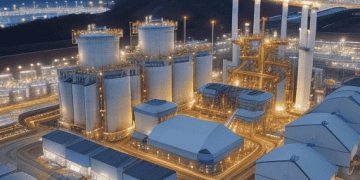SEOUL, South Korea, Feb. 14, 2025 /PRNewswire/ — Korea Zinc (KRX:010130) is positioning itself as a significant player in the global critical minerals supply chain, particularly in light of China’s recent expansion of export controls. The company is the only domestic producer of three of the five materials restricted by China, which are crucial for industries in South Korea. Additionally, Korea Zinc is the world’s largest producer of refined indium, supplying 29% of the U.S. market, further enhancing its role in diversifying global supply chains.
On February 4, China’s Ministry of Commerce and General Administration of Customs announced new export controls on five critical materials: tungsten, tellurium, bismuth, molybdenum, and indium. This move followed earlier export restrictions on antimony, which were introduced in September 2024. These actions are part of China’s strategy to safeguard its national security and economic interests.
In response, the South Korean government has initiated an assessment to determine the impact of these restrictions on local industries. According to the Ministry of Trade, Industry, and Energy (MOTIE), China was responsible for 85% of South Korea’s tungsten imports and over 90% of its molybdenum imports in 2024, highlighting the need to secure alternative sources for these materials.
However, the effects of the export controls on indium, bismuth, and tellurium in South Korea are expected to be minimal, as domestic production remains stable. Korea Zinc is the sole producer of these materials in South Korea and has invested in technology to maintain steady production levels.
Indium, one of Korea Zinc’s key products, plays a critical role in the global supply chain. The company’s efforts to enhance production capacity have helped it maintain its position as the leading producer of refined indium worldwide. Korea Zinc recovers indium by extracting trace amounts from zinc concentrates and secondary raw materials, producing approximately 150 tons annually, which accounts for about 11% of global demand.
Indium is primarily used in the production of ITO (Indium-Tin-Oxide), which is essential for flat-panel displays and touchscreens. The growing demand for indium in the solar and 5G industries, as well as advancements in artificial intelligence (AI) technology, are expected to further increase its global importance. Indium-based substrates are critical for 5G optical communication networks, and demand for indium phosphide in semiconductor materials has risen significantly.
Korea Zinc’s continued focus on improving recovery rates for rare metals has strengthened its position as a vital contributor to global supply chains. The company’s role in the South Korean and international markets is expected to expand further as global demand for critical minerals continues to grow.
The U.S. Geological Survey’s 2025 report notes that South Korea accounted for 29% of indium imports to the United States between 2020 and 2023. With China’s export controls, South Korea’s share of indium imports is expected to increase, underscoring the strategic importance of Korea Zinc’s production in securing global supply chains.
Korea Zinc has stated that it is committed to strengthening its role in both domestic and international markets, contributing to national economic stability and security in the face of growing global competition for critical materials.
Discover the latest in supply chain logistics news on The Supply Chain Report. Free international trade tools are available at ADAMftd.com.
#KoreaZinc #USEconomicSecurity #KoreaChinaRelations #SupplyChainResilience #EconomicSecurity #GlobalTrade #ExportControls

















